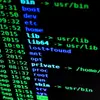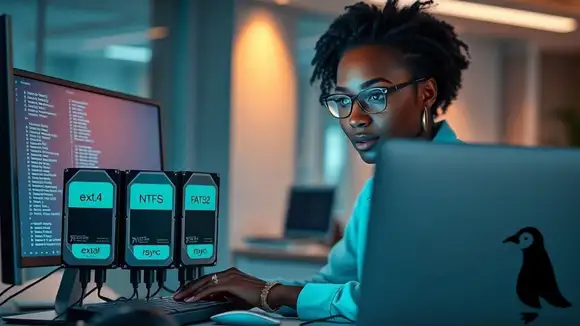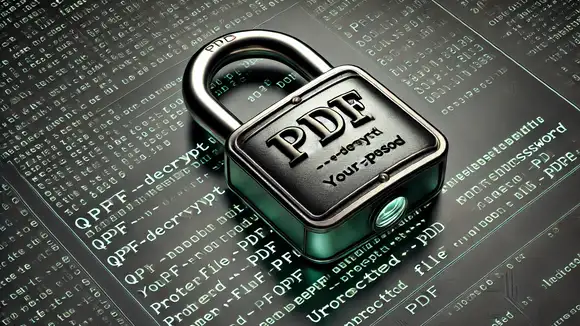Linux is an open source operating system, it mediates communication between applications and hardware, connecting all your programs to the physical resources that perform tasks
Category Linux
21 articles found
How to use rsync with NTFS and FAT32 on Linux: Problems and solutions
At Terminal By Rudi Drusian Lange ✦File sync and backup between Linux, NTFS and FAT32. Understand the limitations of timestamps and permissions and learn how to work around them with options like modify-window and size-only
How to setup openVPN server with Easy-RSA on Linux
 At Open source ✦
At Open source ✦
Complete guide to install and configure OpenVPN Server with Easy-RSA on Slackware Linux. Learn how to create certificates and keys to establish a secure and functional VPN
Certificate Management for OpenVPN with Easy-RSA
 At Open source ✦
At Open source ✦
How to create a CA to securely generate, sign, revoke, and renew certificates. Understand the role of public and private keys, requests, certificates, and more
All about fonts in Linux: Installation, management and tips
 At Terminal ✦
At Terminal ✦
Learn how to customize fonts in Linux: installation, removal and management. Find out where to download free fonts and understand the difference between static and variable fonts
How to Create and Configure initrd in Slackware Linux: Complete Guide
 At Terminal ✦
At Terminal ✦
Find out what initrd is, what it's for and how to generate and use it. Learn how to configure ELILO for a new kernel and use scripts such as mkinitrd, geninitrd and eliloconfig
How to Convert Images to WebP Using the Command Line
 At Terminal ✦
At Terminal ✦
Discover how to convert JPG, PNG and TIFF images to WebP via terminal on Linux, with the possibility of processing multiple images at the same time. Reduce the size without losing quality!
How to repair NTFS partitions in Linux. Chkdsk in Linux
 At Terminal ✦
At Terminal ✦
Fix mounting issues, inconsistencies, and errors on NTFS partitions in Linux with the ntfsfix command. Prepare a full scan on the next Windows boot
Create GPT/MBR partitions and format with NTFS/FAT32/ext4 in Linux
 At Terminal ✦
At Terminal ✦
Complete guide to managing disks on Linux: create GPT or MBR partitions, change name and type, and format as NTFS/ext4. Learn how to remove partition tables. Complete and detailed examples
Set date, time and timezone in Linux using the terminal
 At Terminal ✦
At Terminal ✦
Find out how to set the clock and timezone on Linux and hardware (BIOS/UEFI). Synchronize with NTP servers and ensure that your system clock is always up to date and accurate
How to Schedule Tasks in Linux Using Crontab: Detailed Examples
 At Terminal ✦
At Terminal ✦
Define custom scheduling ranges, explore essential commands, change the default editor, organize script scheduling by folders, and view execution logs
How to upload a new project to GitHub with Linux and SSH, no password
 At Terminal ✦
At Terminal ✦
Set up Git in your local repository, sync with GitHub, learn about versioning, and use tags and releases to organize versions of your project and make it available for download
What SSH keys are and how to use them instead of your network password
 At Terminal ✦
At Terminal ✦
Learn how to generate the public and private key pair, understand their functions and the RSA and Ed25519 algorithms. How to transfer the key and authorize the connection without a password
Using Git to share and collaborate on a project
 At Terminal ✦
At Terminal ✦
How to clone a project, make changes and merge them, customize history queries, name commits as versions and compare them, search using Git and more useful commands
Learning the basics of Git and the use of branches
 At Terminal ✦
At Terminal ✦
An introduction to git: how to set up in a project, define basic configurations, manage branches, view histories and deal with conflicts
Commands to get information from the machine's hardware in Linux
 At Terminal ✦
At Terminal ✦
List of commands to display hardware configurations on the Linux machine using the terminal: cpu, memory, usb, network, video cards, HD, SSD, DVDs, sata, partitions, free space
Checking machine hardware information in the Linux terminal with lshw
 At Terminal ✦
At Terminal ✦
The lshw command is used in the Linux terminal to generate detailed reports about hardware. See memory, processor, HD, SSD, network, pci, usb, scsi, sata, all in one command
Change permissions only for directories or files recursively
 At Terminal ✦
At Terminal ✦
Useful commands in the Linux terminal to fix permissions on large file and directory structures




